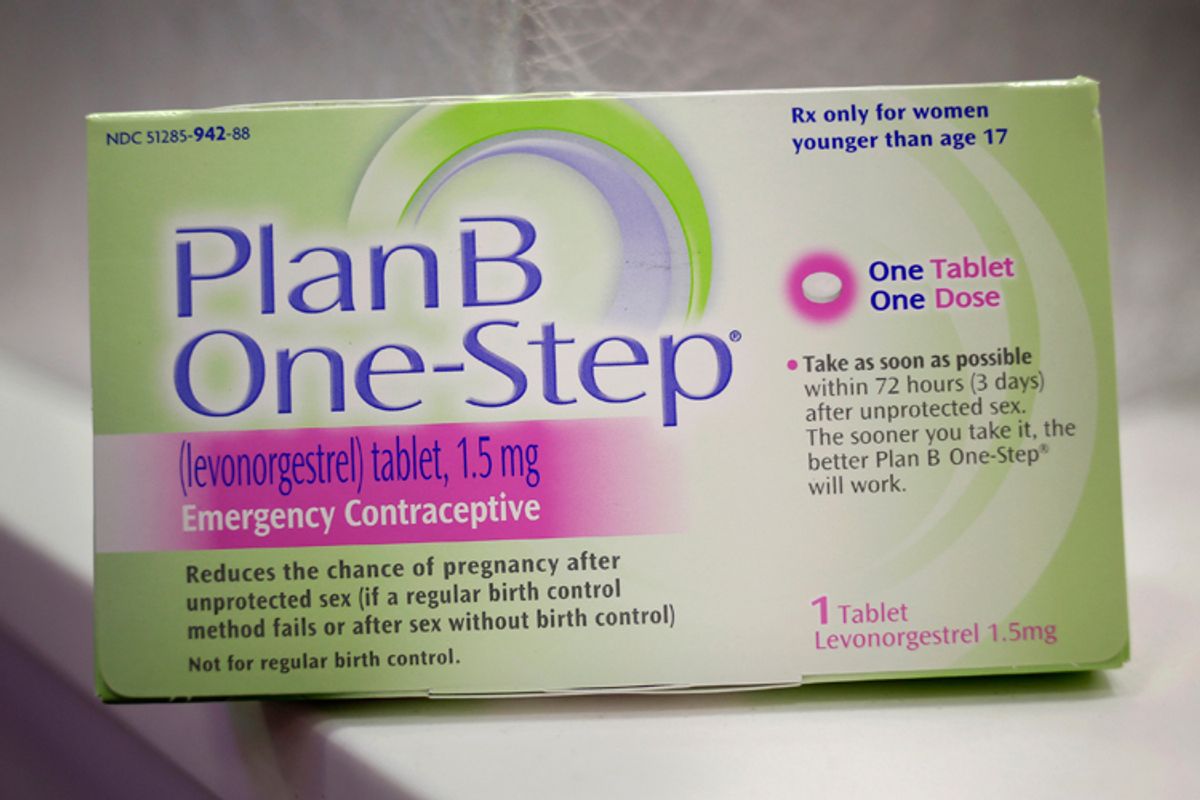In 2006, the FDA has supported over-the-counter access to emergency contraception for men. It's legal for them to buy it, and has been for years. And yet, according to the results of a new study out of Columbia University, men are denied access to the medication nearly 20 percent of the time.
The research is the first to specifically target males' ability to access emergency contraception, such as Plan B -- an effective method of avoiding unintended pregnancy, specifically in cases of rape or the failure of a primary method of birth control. The "mystery shopper" survey included 158 pharmacies in three different parts of New York City, where one might anticipate there to be few barriers to access (unlike places such as Mississippi and Texas, where pharmacists have refused to sell emergency contraception to men in the past). There is plenty of misinformation out there about who gets to buy Plan B, where they can buy it and how old they must be -- and, unfortunately, the study only reinforced how prevalent that misinformation is.
1 in 5 times, men were denied access to emergency contraception. 81 percent of the pharmacies included in the study refused to sell it to the male mystery shoppers, and nearly three-quarters required the presence of a female with identification. More than a quarter "reported" that they did not have Plan B or other generic versions in stock, which a study press release reports was consistent with earlier research done in New York City.
As the Huffington Post points out, the new study was conducted in 2012, before the FDA lifted age limits on Plan B and made it available over the counter. (Before the change, people under the age of 17 were denied access.) Each of the men in the study, however, was 19, 25 or 28, so the prior age restrictions still would not have applied. According to Dr. David Bell, an associate professor of public health at Columbia and one of the study's authors, there are a few possible explanations for the pharmacists' refusal.
"The pharmacist may have thought that to comply with the age restriction the female needed to be present," Bell said. "A second potential explanation is that pharmacists conscientiously objected to EC overall or its purchase by males. Anecdotally, speaking with a few pharmacists about the results, the request may have been a covert way to determine the presence or lack of coercion in a relationship."
Despite what might be good intentions, though, Bell expressed concern for the possibility that pharmacists might be "conscientiously objecting" to selling emergency contraception to men, potentially impeding both their rights to access it and their female partners'. "Another area of concern is the notion of pharmacists who may refuse to dispense the morning-after-pill for personal beliefs," Bell said. "In the future, research needs to explore young men's knowledge and attitudes regarding this means of contraception, their intentions to accept advance provision of the pills with condoms, and any implications of coercion between males and females related to emergency contraception."

Shares